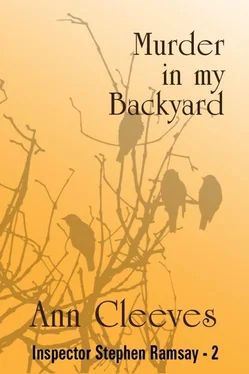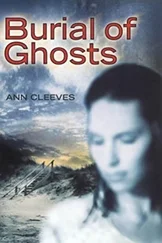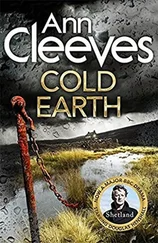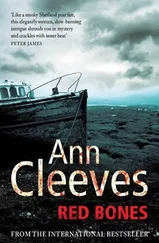Ann Cleeves - Murder in My Backyard
Здесь есть возможность читать онлайн «Ann Cleeves - Murder in My Backyard» весь текст электронной книги совершенно бесплатно (целиком полную версию без сокращений). В некоторых случаях можно слушать аудио, скачать через торрент в формате fb2 и присутствует краткое содержание. Жанр: Детектив, на английском языке. Описание произведения, (предисловие) а так же отзывы посетителей доступны на портале библиотеки ЛибКат.
- Название:Murder in My Backyard
- Автор:
- Жанр:
- Год:неизвестен
- ISBN:нет данных
- Рейтинг книги:5 / 5. Голосов: 1
-
Избранное:Добавить в избранное
- Отзывы:
-
Ваша оценка:
- 100
- 1
- 2
- 3
- 4
- 5
Murder in My Backyard: краткое содержание, описание и аннотация
Предлагаем к чтению аннотацию, описание, краткое содержание или предисловие (зависит от того, что написал сам автор книги «Murder in My Backyard»). Если вы не нашли необходимую информацию о книге — напишите в комментариях, мы постараемся отыскать её.
Murder in My Backyard — читать онлайн бесплатно полную книгу (весь текст) целиком
Ниже представлен текст книги, разбитый по страницам. Система сохранения места последней прочитанной страницы, позволяет с удобством читать онлайн бесплатно книгу «Murder in My Backyard», без необходимости каждый раз заново искать на чём Вы остановились. Поставьте закладку, и сможете в любой момент перейти на страницу, на которой закончили чтение.
Интервал:
Закладка:
“Where do you keep the stock you don’t sell?”
“What do you mean?”
“There must be out-of-date newspapers, magazines. You can’t keep them on the shelves. What do you do with them?”
“I save them,” Elliot said proudly. “Then sell them to a wastepaper merchant. For charity. I give the money to the hospital where my wife died. I can show you it if you like.” He had no suspicion, it seemed, of Ramsay’s motive for asking. Still in his slippers, he led the policeman across the yard to a large, well-built shed in one corner.
The collection of wastepaper had become a hobby, it seemed, almost an obsession. “I collect the neighbours’ papers as well,” he said. “And the church helps. It’s surprising how it mounts up. You can make pounds.” He unbolted the shed door and switched on a light. Inside, against one wall, in neatly stacked and wrapped bundles, were piles of newspapers. Ramsay could imagine Elliot in there, escaping from his rude and unpredictable son, soothing his nerves by counting the papers and calculating their worth. In comparison to the general tidiness, the floor was a mess of paper scraps, as if a child had been playing at cutting out. There was a pair of round-ended scissors and a tube of glue. Elliot stood, betrayed and horrified, realising for the first time what the questions had been leading up to.
“I take it,” Ramsay said, “that these have nothing to do with you.”
Elliot shook his head.
“You do realise that we’ll have to take these pieces of newspaper to compare with the print on the anonymous letter to Mrs. Parry?”
“Yes,” Elliot said. He looked at Ramsay desperately. “ He might have sent the letter,” he pleaded, “but that doesn’t mean that he killed her.”
“No,” Ramsay said gently. “ It doesn’t mean that he killed her.”
“What will you do with him now?”
“I’ll talk to him,” Ramsay said. “Probably take him to the police station and ask him some questions. You mustn’t worry too much. He can see a solicitor.”
“He wouldn’t have killed her,” Elliot said, as if he were trying to convince himself. “He wouldn’t have killed her.”
Ramsay left him in the shed, surrounded by his beloved wastepaper, standing by the open door and looking out at the whirlwind of sand funnelled by the wind into the yard.
Out in the street little had changed. An old woman stood on the pavement patiently waiting for the post office to open. Two detective constables moved slowly along the terrace on the other side of the green, knocking on doors, asking questions. In the garage workshop Tom Kerr stood before the open bonnet of a car. Ramsay stood by the open door and looked in.
Kerr straightened slowly. “ Inspector Ramsay,” he said. “How can I help you? Olive’s in the house.” He looked slightly ridiculous in his boiler suit still wearing the heavy-framed glasses. He would be more at home, Ramsay thought, in his choirmaster’s cassock.
“I’d like to speak to Charlie Elliot,” Ramsay said.
“Aye,” Kerr said with a trace of anger. “You and me both.”
He wiped his hands on a cloth and moved to the front of the garage to meet Ramsay. “ He’s not here,” he said. “He came in from his dinner about half an hour ago. We had a car with a timing problem and he said he’d take it up the road to see what was wrong. He’s not back yet. It doesn’t take a ten-mile drive to check a timing problem.”
“Where do you think he’s gone?”
“I don’t know,” Kerr said. “He doesn’t talk to me. He’s very moody. This had made my mind up for me. I’ve been thinking of telling him to leave for a while.”
“He was talking of looking for work in the south,” Ramsay said.
“Was he?” Kerr seemed relieved. “He’s not said anything to me.”
“If Charlie comes back, will you tell him to get in touch? I’ll be up at the police house.”
But Ramsay knew that Charlie was unlikely to return and realised with a depressing certainty that he had allowed a major murder suspect to run away. In the street outside the garage a Radio Newcastle reporter stopped him and asked for an interview, but Ramsay said he had no comment to make and hurried up the hill to the police house. He sent cars up each of the roads out of Brinkbonnie, but by then it was too late. Charlie Elliot had disappeared.
Chapter Ten
Hunter seized on the disappearance of Charlie Elliot as an excuse for activity. While the communications centre at Otterbridge put out a general description of Charlie Elliot and of the car he was driving, Hunter drove at great speed around the country lanes, hoping to make an immediate arrest. He returned to the police house in the middle of the afternoon, disappointed, but still convinced that Charlie Elliot was a murderer. Ramsay knew the danger of jumping to conclusions too quickly and cautioned patience, an open mind.
“Charlie Elliot had an alibi for the time of the murder,” he said reasonably. “His father confirmed that he was in the house by eleven. And then there was the girl he saw in the churchyard. We should be looking for her.”
“What girl?” Hunter demanded. “ Man, that was just Elliot making up stories to throw us off the scent. No-one in the Tower saw a girl. And the old man was lying to protect his son.”
“What about motive?” Ramsay said quietly. “ I thought you said no-one would commit murder for the sake of a few houses.”
“No-one sane,” Hunter said. “We know Elliot was unbalanced, unpredictable. Look at his obsession with that girl in the pub. He’s our man. He can’t have got far. We’ll have him tonight.”
But as the afternoon wore on there was no information about Elliot. No-one had seen the car. The men waiting in the police house became irritable and impatient, and to make things worse Fred Elliot was on the phone every half-hour wanting to know if his son had been found and claiming that Charlie, too, had been murdered.
At half-past six Ramsay had waited long enough.
“I’m going to Otterbridge,” he said to Hunter, “to talk to the Laidlaws. Go and sit with old man Elliot. There’s a chance Charlie will come home when he’s cold and hungry. And you’ll need to break that alibi if you’re to prove Charlie guilty. Elliot might talk while he’s so upset.”
They walked together down the street to the green, where Ramsay’s car was parked. Despite the cold, two teenage boys in black leather stood by the bus stop, smoking a cigarette, passing it between them.
Poor sods, thought Hunter. What else is there for them to do in a place like this?
“Nip over and get their names and addresses,” Ramsay said. “Stella Laidlaw saw some lads at the bus stop on Saturday night. Find out if it was them.”
Hunter went, sauntering towards them, indirectly over the grass. Ramsay thought Hunter had more in common with the boys than he did with him. The sky was clear and there would be another frost. Ramsay shivered as he watched the three figures by the bus shelter. He saw Hunter take a packet of cigarettes from his pocket and hand it around, then the three of them huddled together around the lighter, sheltering the flame from the breeze. He imagined the three in conspiracy against him. “That’s my boss,” he imagined Hunter saying. “But don’t take any notice of him. If you’ve got any information, come straight to me.”
That’s ridiculous, he thought. Diana always said I was paranoid. But his suspicions about Diana had been justified and she had run away eventually with someone who produced television programmes for the BBC in Fenham.
Hunter returned, stubbing out the cigarette with the heel of his designer trainers before he reached the inspector.
“They’re all right,” he said. “Bored out of their brains, but who can blame them in a place like this? They weren’t here Saturday night, but they’ve given me the names and addresses of a couple of other lads who might have been.”
Читать дальшеИнтервал:
Закладка:
Похожие книги на «Murder in My Backyard»
Представляем Вашему вниманию похожие книги на «Murder in My Backyard» списком для выбора. Мы отобрали схожую по названию и смыслу литературу в надежде предоставить читателям больше вариантов отыскать новые, интересные, ещё непрочитанные произведения.
Обсуждение, отзывы о книге «Murder in My Backyard» и просто собственные мнения читателей. Оставьте ваши комментарии, напишите, что Вы думаете о произведении, его смысле или главных героях. Укажите что конкретно понравилось, а что нет, и почему Вы так считаете.












